When Fear Comes
Fear, a despotic state’s most potent weapon, keeps a population compliant. It will be lavishly supplied as we are thrust into a new dark age.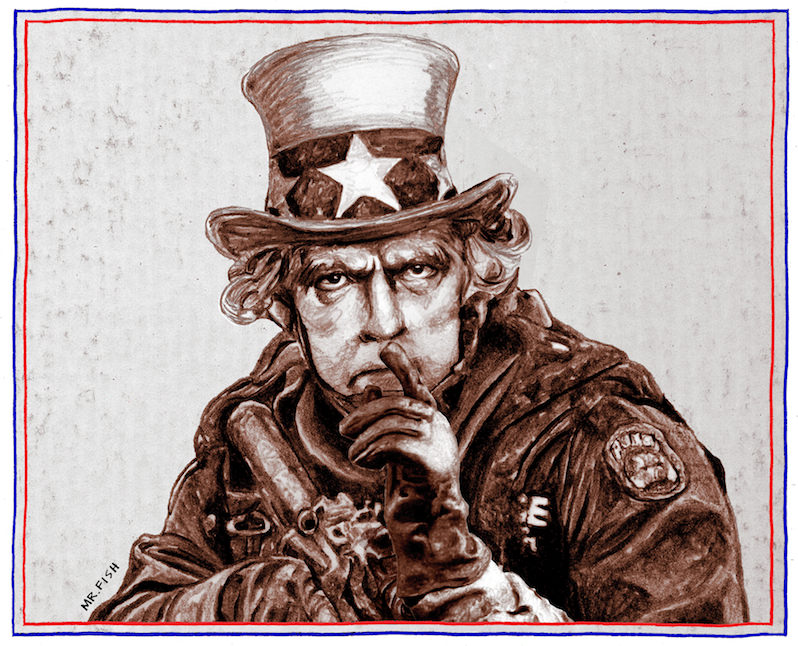
Mr. Fish / Truthdig
Alexander Solzhenitsyn in “The Gulag Archipelago,” his profound meditation on the nature of oppression and resistance in the Soviet gulags, tells the story of a man who was among prisoners being moved in the spring of 1947. The former front-line soldier, whose name is lost to history, suddenly disarmed and killed the two guards. He announced to his fellow prisoners that they were free.
“But the prisoners were overwhelmed with horror; no one followed his lead, and they all sat down right there and waited for a new convoy,” Solzhenitsyn writes. The prisoner attempted in vain to shame them. “And then he took up the rifles (thirty-two cartridges, ‘thirty one for them!’) and left alone. He killed and wounded several pursuers and with his thirty-second cartridge he shot himself. The entire Archipelago might well have collapsed if all the former front-liners had behaved as he did.”
The more despotic a regime becomes, the more it creates a climate of fear that transforms into terror. At the same time, it invests tremendous energy and resources in censorship and propaganda to maintain the fiction of the just and free state.
Poor people of color know intimately how these twin mechanisms of fear and false hope function as effective forms of social control in the internal colonies of the United States. They have also grasped, as the rest of us soon will, the fiction of American democracy.
Those who steadfastly defy the state will, if history is any guide, be decapitated one by one. A forlorn hope that the state will ignore us if we comply will cripple many who have already been condemned. “Universal innocence,” Solzhenitsyn writes, “also gave rise to the universal failure to act. Maybe they won’t take you? Maybe it will all blow over.”
“The majority sit quietly and dare to hope,” he writes. “Since you aren’t guilty, then how can they arrest you? It’s a mistake!
“Does hope lend strength or does it weaken a man?” Solzhenitsyn asks. “If the condemned man in every cell had ganged up on the executioners as they came in and choked them, wouldn’t this have ended the executions sooner than appeals to the All-Russian Central Executive Committee? When one is already on the edge of the grave, why not resist?”
“But wasn’t everything foredoomed anyway, from the moment of arrest?” he asks. “Yet all the arrested crawled along the path of hope on their knees, as if their legs had been amputated.”
Resisting despotism is often a lonely act. It is carried out by those endowed with what the theologian Reinhold Niebuhr calls “sublime madness.” Rebels will be persecuted, imprisoned or forced to become hunted outcasts, much as Chelsea Manning, Julian Assange and Edward Snowden are now. A public example will be made of anyone who defies the state. The punishment of those singled out for attack will be used to send a warning to all who are inclined to dissent.
“Before societies fall, just such a stratum of wise, thinking people emerges, people who are that and nothing more,” Solzhenitsyn writes of those who see what is coming. “And how they were laughed at! How they were mocked! As though they stuck in the craw of people whose deeds and actions were single-minded and narrow-minded. And the only nickname they were christened with was ‘rot.’ Because these people were a flower that bloomed too soon and breathed too delicate a fragrance. And so they were mowed down.”
“These people,” he goes on, “were particularly helpless in their personal lives; they could neither bend with the wind, nor pretend, nor get by; every word declared an opinion, a passion, a protest. And it was just such people the mowing machine cut down, just such people the chaff-cutter shredded.”
When I returned to the newsroom at The New York Times after being booed off a commencement stage in 2003 for denouncing the invasion of Iraq, reporters and editors lowered their heads or turned away when I was nearby. They did not want to be touched by the same career-killing contagion. They wanted to protect their status at the institution. Retreat into rabbit holes is the most common attempt at self-protection.
The right-wing cable shows were lynching me almost hourly. Soon I was given a written reprimand and public rebuke by the newspaper. I was a leper.
The machinery of the security and surveillance state, the use of special terrorism laws and the stripping of civil liberties become ubiquitous. The lofty rhetoric of liberty and the reality of the chains readied for the public creates magic realism. Reality and the language describing reality are soon antipodal. The pseudo-democracy is populated with pseudo-legislators, pseudo-courts, pseudo-journalists, pseudo-intellectuals and pseudo-citizens. Nothing is as it is presented.
Demagogues, Solzhenitsyn reminds us, are stunted and shallow people. “Unlimited power in the hands of limited people always leads to cruelty,” he writes.
“The overall life of society comes down to the fact that traitors were advanced and mediocrities triumphed, while everything that was best and most honest was trampled underfoot,” he observes. Ersatz intellectuals, surrogates “for those who had been destroyed, or dispersed,” took the place of real intellectuals.
“After all,” Solzhenitsyn writes, “we have gotten used to regarding as valor only valor in war (or the kind that’s needed for flying in outer space), the kind which jingle-jangles with medals. We have forgotten another concept of valor—civil valor. And that’s all our society needs, just that, just that, just that!”
This kind of valor, he knew as a combat veteran, requires a moral courage that is more difficult than the physical courage encountered on the battlefield.
“This unanimous quiet defiance of a power which never forgave, this obstinate, painfully protracted insubordination, was somehow more frightening than running and yelling as the bullets fly,” he says.
The coming arrests mean that a wide range of Americans will experience the violations that poor people of color have long endured. Self-interest alone should have generated sweeping protest, should have made the nation as a whole more conscious. We should have understood: Once rights become privileges that the state can revoke, they will eventually be taken away from everyone. Now those who had been spared will get a taste of what complicity in oppression means.“The traditional image of arrest is also what happens afterward, when the poor victim has been taken away,” Solzhenitsyn writes. “It is an alien, brutal, and crushing force totally dominating the apartment for hours on end, a breaking, ripping one, pulling from the walls, emptying things from wardrobes and desks onto the floor, shaking, dumping out, and ripping apart—piling up mountains of litter on the floor—and the crunch of things being trampled beneath jackboots. And nothing is sacred in a search! During the arrest of locomotive engineer Inoshin, a tiny coffin stood in his room containing his newly dead child. The ‘jurists’ dumped the child’s body out of the coffin and searched it. They shake sick people out of their sickbeds, and they unwind bandages to search beneath them.”
“Resistance,” he writes, “should have begun right there, at the moment of the arrest itself. But it did not begin.” And so the mass arrests were easy.
And what at that point constitutes victory?
“From the moment you go to prison you must put your cozy past firmly behind you,” he writes. “At the very threshold, you must say to yourself: ‘My life is over, a little early to be sure, but there’s nothing to be done about it. I shall never return to freedom. I am condemned to die—now or a little later. But later on, in truth, it will be even harder, and so the sooner the better. I no longer have any property whatsoever. For me those I love have died, and for them I have died. From today on, my body is useless and alien to me. Only my spirit and my conscience remain precious and important to me.”
“Confronted by such a prisoner, the interrogation will tremble,” Solzhenitsyn writes. “Only the man who has renounced everything can win that victory.”
The last volume of Solzhenitsyn’s trilogy chronicles camp uprisings and revolts. These revolts were impossible to foresee.
“So many deep historians have written so many clever books and still they have not learned how to predict those mysterious conflagrations of the human spirit, to detect the mysterious springs of a social explosion, not even to explain them in retrospect,” Solzhenitsyn writes. “Sometimes you can stuff bundle after bundle of burning tow under the logs, and they will not take. Yet up above, a solitary little spark flies out of the chimney and the whole village is reduced to ashes.”
How do we prepare? Solzhenitsyn, after eight years in the gulag, answers this too.
“Do not pursue what is illusory—property and position; all is gained at the expense of your nerves decade after decade, and is confiscated in one fell night. Live with a steady superiority over life—don’t be afraid of misfortune, and do not yearn after happiness; it is, after all, all the same: the bitter doesn’t last forever, and the sweet never fills the cup to overflowing. It is enough if you don’t freeze in the cold and if thirst and hunger don’t claw at your insides. If your back isn’t broken, if your feet can walk, if both arms can bend, if both eyes can see, and if both ears can hear, then whom should you envy? And why? Our envy of others devours us most of all. Rub your eyes and purify your heart—and prize above all else in the world those who love you and who wish you well. Do not hurt them or scold them, and never part from any of them in anger; after all, you simply do not know: it might be your last act before your arrest, and that will be how you are imprinted in their memory!”
Independent journalism is under threat and overshadowed by heavily funded mainstream media.
You can help level the playing field. Become a member.
Your tax-deductible contribution keeps us digging beneath the headlines to give you thought-provoking, investigative reporting and analysis that unearths what's really happening- without compromise.
Give today to support our courageous, independent journalists.

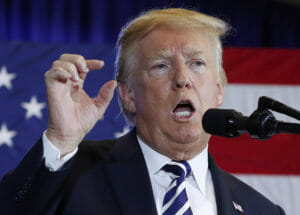
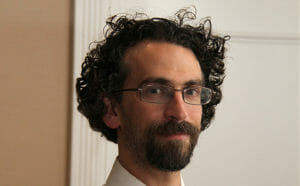
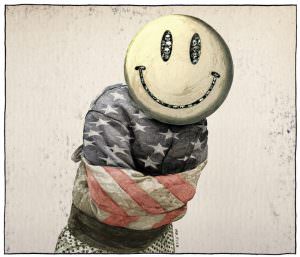

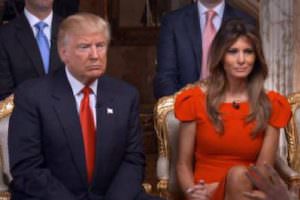


You need to be a supporter to comment.
There are currently no responses to this article.
Be the first to respond.